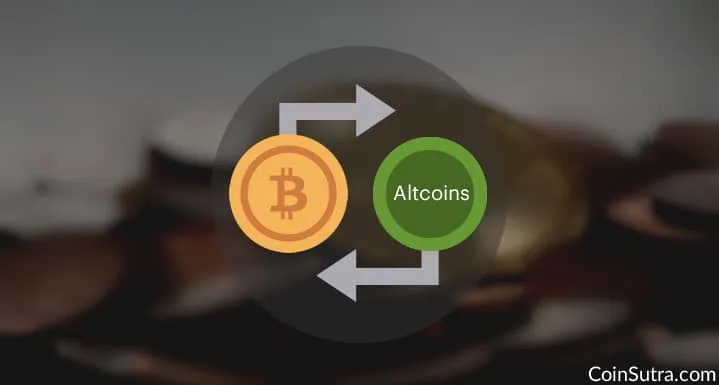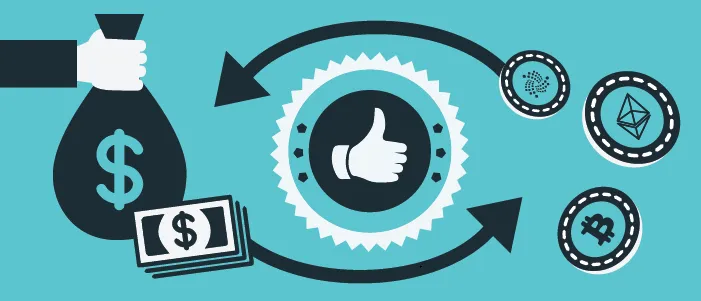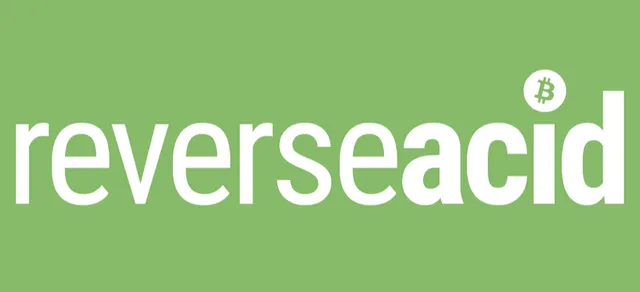Crypto Exhanges
Cryptocurrency exchanges are intermediaries that stimulate the buying and selling of cryptocurrencies in exchange for a fee. Exchanges function as a means to trade, speculate or convert existing value with other instruments, even fiat currency. Exchanges form a huge part of the cryptocurrency economy as they help stimulate the growth of the sector. Several exchanges have popped up since the advent of Mt. Gox, initially formed as a trading card exchange platform. Here's a link of the most famous exchanges functioning today.

Source: CoinSutra
Operating a digital currency exchange today is quite a daunting task as cryptocurrencies are still a nascent technology, undergoing immense global scrutiny. Exchanges function well in environments where the local legislation supports their functioning. For that reason, Malta and the United States have seen a huge influx of startups trying to operate cryptocurrency exchanges. But due to its relatively new infrastructure, operating cryptocurrency exchanges bring in a whole new array of procedural complexities.
Even though several problems are laid down, this article does not try to solve all the existing problems in one go but aims to start a dialogue among the members of the community so that a solution or compromise can be reached.
Current Issues with Starting and Operating a cryptocurrency exchange
- Regulation
Opening a Cryptocurrency exchange comes with all forms of operational risks. To start an exchange, one has to comply with the local jurisdictions. There have been numerous instances where exchanges were cracked down due to their inability to work hand in hand with the regulatory authorities. In the USA, exchanges can be formed in certain states where the authorities allow them to function, provided they comply with the guidelines provide. Delaware, New York, and California are home to half a dozen well-known cryptocurrency exchanges as the regulatory authorities are satisfied with the exchanges’ ability to comply with the requests of the authorities. In India however, banks or financial institutions regulated by the reserve bank are not allowed to have any relationships with cryptocurrency business. Thus, peer-to-peer exchanges are thriving to ensure the public gets its share of the innovation.
- Single point of failure
Exchanges act as custodians of data and value. They collect information on the users and store their cryptocurrencies to allow a seamless experience. But this also acts as a single point of failure. Any motivated entity with a determined attitude to bring down the exchange can do so by repeatedly targeting the single point. Mt. Gox, Cryptopia, Quadriga are just a few of the long list of exchanges that have faced closure or temporary set back due to outside interference.
To know more about the failure of exchanges, see here, here and here.
- Inability to handle the flow
Exchanges are sometimes unable to keep their new account opening facilities, mostly due to a sudden influx of people. Because of this issue, many affluent traders are not able to register at their desired exchange. Late 2017 and early 2018 saw several exchanges face temporary closure due to a sudden increase in prospective customers. This issue has been noted numerous times by a lot of the major exchanges.
An article by Business Insider talks abou this flaw.
- Large Player Manipulation
Trading fees on crypto exchanges are sort of a two-edged sword. While low or no fees can significantly increase the liquidity of exchange, it also allows large investors to manipulate crypto prices more easily and cheaply. Large players can easily manipulate the flow for their personal gain. Late 2017 saw Bitcoin Cash being inflated artificially to compete with Bitcoin.

Source: Invest Openly
Several groups of people who call themselves 'Whales' (owing to their fat wallet balance) are known to form alliances to periodically manipulate prices and artificially inflating demand. Telegram pump and dump groups are also considered common norms.
- International Customers
Most regulatory frameworks usually assume the business operating within their borders to serve customers in their own jurisdiction. But a cryptocurrency exchange usually serves customers from around the world. It is important to straighten out the complexities in running the exchange as most users of the exchange are citizens of another jurisdiction and do not fall under the purview of the particular country. This put a question on the disclosure responsibilities of the exchange. Should it be allowed to ask for KYC documents from persons outside the particular jurisdiction, and if it should, should it be allowed to share the data with the local authorities and what can be done with the details in times of discrepancies.
- Accountability
Audit of exchanges is really important as it has been noted that several exchanges such as Mt. Gox, Bitfinex, etc., have engaged in backend manipulation to cover up the faults of the administration, which ultimately ended up losing millions of dollars in customer funds. These activities mainly ended up compounding the inefficiencies due to the lack of audit procedures set in place by the regulatory authorities and the administration of the exchange.
Conclusion:
It is obvious that the exchanges lack several fundamental capabilities which can and most probably will hinder their long term success. But that does not stop them from fulfilling the short term demand. It can be seen that several exchanges such as LocalBitcoins, Cryptopia, Bitfiniex etc., have seen a historic rise in demand even though their internal structure remains far from functional.
Short term demand can be fulfilled, but if the exchanges wish to remain competitive and profitable in the long term, fulfilling the demand just won’t do. Regulation criteria have to be met, security structure updated, an internal and external audit conducted and interoperability softened to ensure sustained long term growth prospects.
One answer to the flaws of cryptocurrency exchanges are Decentralized exchanges. A detailed article on them will be covered in a later period.
Sources:
- 36 bitcoin exchanges that are no longer with us
- Top 5 Major Issues Of Crypto Exchanges
- Starting Your Own Bitcoin or Cryptocurrency Exchange Business – A Step-by-Step Guide
- Where to Start a Cryptocurrency Exchange – Crypto Friendly Countries
- SB
ReverseAcid Monthly Recap
- ReverseAcid Monthly Recap - November 2018 (Vol 1)
- ReverseAcid Monthly Recap - December 2018 (Vol 2)
- ReverseAcid Monthly Recap - January 2019 (Vol 3)
Crypto Analysis Series
- Part 1 - Basic Attention Token and How It's Revolutionizing the Internet
- Part 2 - Golem Network Token as a Potential Giant Killer
- Part 3 - Augur and the Future of Decentralized Predictions Markets
- Part 4 - Dogecoin - Such Meme, Much Value
- Part 5 - Zilliqa
- Part 6 - IOTA
Previous Articles:
- Dharma Protocol: Tokenized Debt and Funding Through Decentralized Systems
- Venezuelan Economic Crisis: An Outsider's Perspective
- Barriers to Stablecoin Adoption: Detaching from the Traditional Notion of Markets
- Why Bitcoin Proves Markets Function on Behavior
- 2 Key Areas Zilliqa Identified Weakness in the Ethereum Protocol and Improved It
- Ujo as a Platform for Music Revamping - An Innovation Review
- Transforming Real Estate Investment on the Blockchain
- Determining the Role of Clearing and Settlement Houses
- Crypto Analysis Series - Part 6: IOTA
- The Stablecoin Ecosystem and It’s Importance to Digital Payments
- Looking Back at the Ethereum Hard Fork Timeline - A Precursor to Constantinople
About Reverse Acid

Be a part of our Discord community to engage in related topic conversation.

Follow our Instagram and Twitter page for timely market updates

